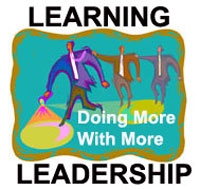How to grow the leadership capacity of your team to meet changing corporate demands
Learn how to cultivate the leadership potential of your staff and in the process become a better leader yourself.
So much to do, so little time. It’s a common complaint of communication managers everywhere. Demands increase while resources dwindle, and we find our value compromised by perpetual busyness.
How to solve this dilemma? The answer lies in leveraging the power of the people who work with you everyday. By developing the leadership abilities of your staff, you bring greater meaning and satisfaction to the work they do and increase the performance of your team and yourself exponentially.
In this seminar, you’ll learn how traditional management approaches limit the effectiveness of your staff and your potential as a leader. Elise discusses current research on the forces of change that make leadership a job for everyone and how you can appeal to the leadership potential of your employees, regardless of their particular areas of strength.
She also looks at some tools and processes you can start using immediately to create an environment of learning and leadership within your team, including your own personal leadership assessment and learning plan for change.
Learning topics:
- How the complexity of today’s business environment requires a new leadership approach by communicators
- The core competencies required for leadership in the practice of communication
- Discovering what motivates staff to excel
- Creating a learning organization within your own team
- Mapping out a learning plan to increase your team’s leadership capacity
- Making the transition from “doing” to “leading”
How-to Handouts in This CD:
- DOING MORE WITH MORE – 17 slides
- Leadership Interviews Exercise
- Core Competencies for Communication Leadership – Personal Checklist
- Core Competencies for Communication Leadership – Personal Learning Plan
Elise answers real-world questions on:
- How to choose the right leadership competencies for developing your staff
- How to balance the disciplines of managing and leading
- How to find the time to develop you staff when you have so many other things to do
- How to make leaders of staff who would rather be followers
- The best tools and channels to communicate with your team about leadership visions, competencies
- Five areas of leadership ability
- Why communicators tend to be too shy about stepping up to the plate as leaders – and how to over come this
- Recommendations on courses or training to advance your communication leadership skills
- Why communicators may be looked over or taken for granted by the executive leadership of organizations
- Common traits of leadership “heroes”
Who should purchase:
- Business leaders
- Corporate Communications
- Marketing
- Advertising
- Internal Communications
- Public Affairs
- Public Relations
- Organizational Development
- Human Resources
- Corporate Strategy and Development
- Senior Management
- College/university libraries and bookstores
Instructor:
 Elise Roaf, MBA, ABC, MC, CHRPhas more than 20 years of experience as a communications professional and consultant in the private and public sector and with nonprofit organizations. Her areas of expertise include strategic communication, change management and organizational development. She has developed curricula, taught courses and facilitated workshops in university and corporate settings and is currently a sessional instructor in organizational communications at Kwantlen University College.
Elise Roaf, MBA, ABC, MC, CHRPhas more than 20 years of experience as a communications professional and consultant in the private and public sector and with nonprofit organizations. Her areas of expertise include strategic communication, change management and organizational development. She has developed curricula, taught courses and facilitated workshops in university and corporate settings and is currently a sessional instructor in organizational communications at Kwantlen University College.
Elise holds a Master of Business Administration specializing in Human Resources Management from Royal Roads University, a Bachelor of Arts from the University of Western Ontario, and a Certificate in Public Relations from the University of Regina.
Her professional designations include an Accredited Business Communicator and a Certified Human Resources Professional. She has received numerous awards for excellence in business communication. Among them are the Master Communicator Award, the highest honor awarded to a Canadian member of the International Association of Business Communicators, and the IABC Chairman’s Award for contributions to the association and the profession as a whole.




























